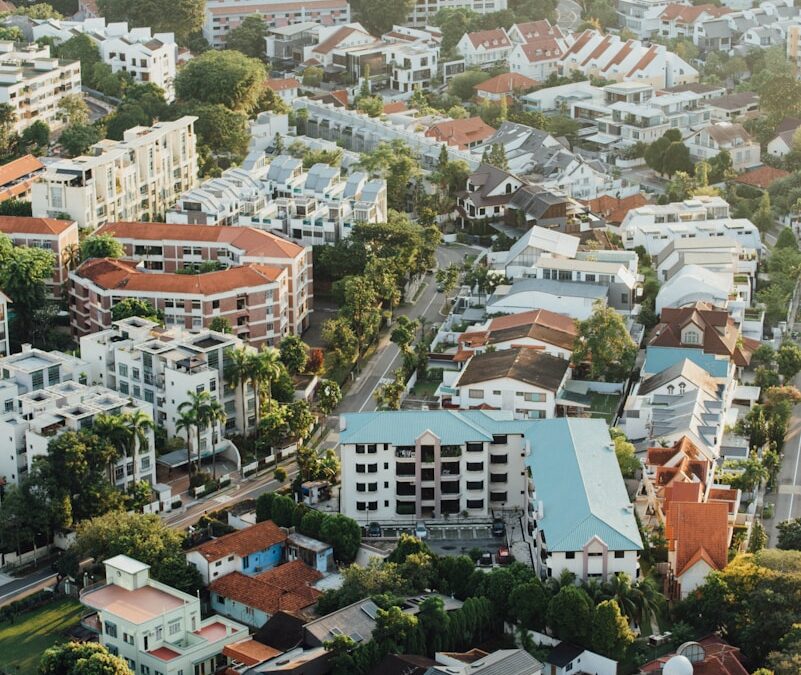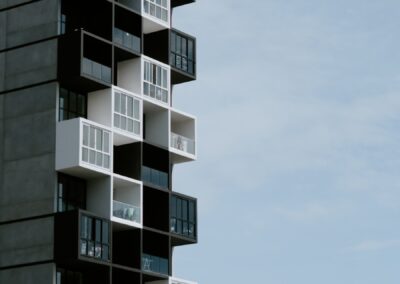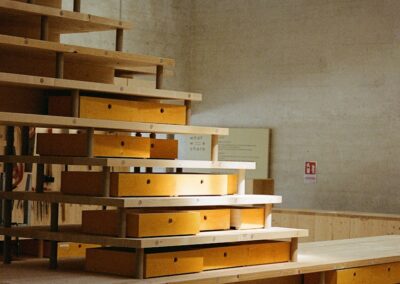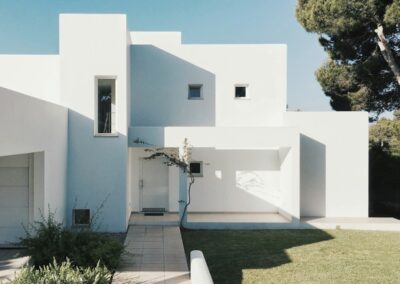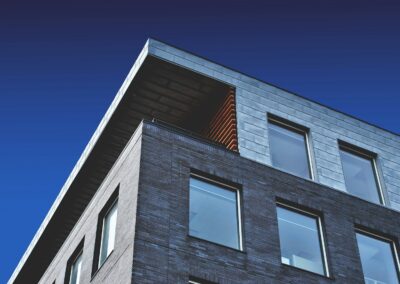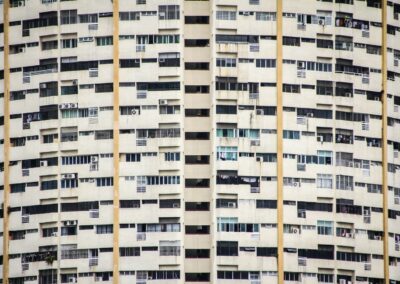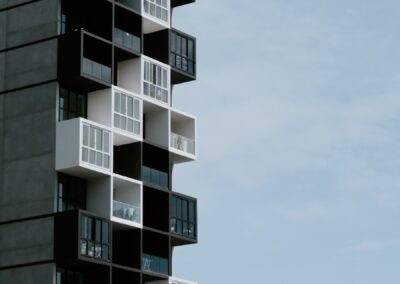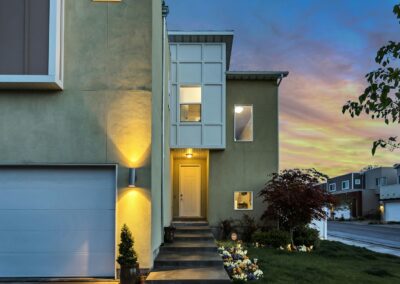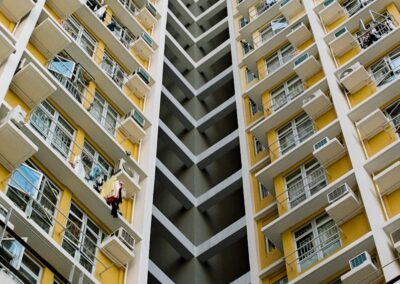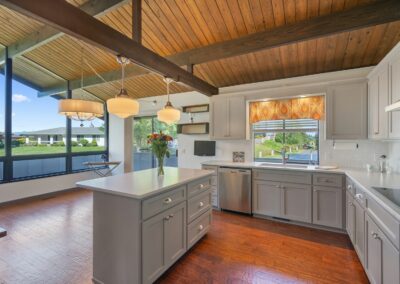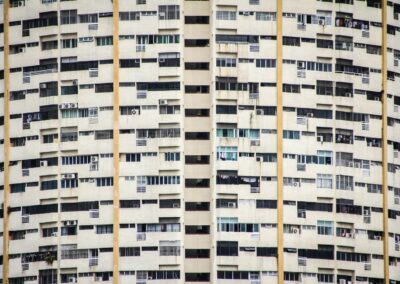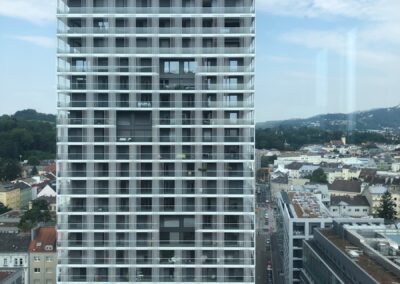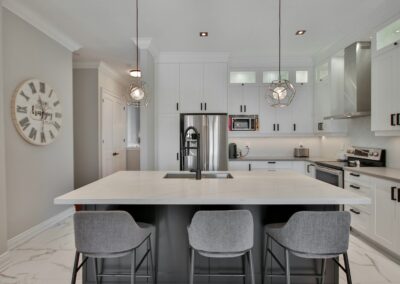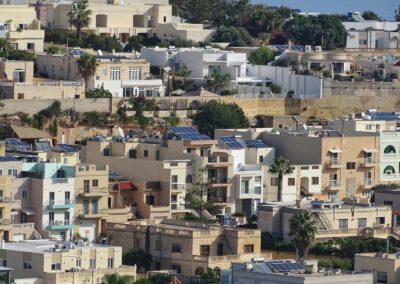Advancing Green Construction with Eco-Friendly Building Practices
The Role of Sustainable Materials in Modular Housing Construction
Sustainable materials in modular housing play a critical role in promoting environmental responsibility and resource efficiency. As regions like Saudi Arabia and the UAE continue to innovate in urban development, the use of eco-friendly building materials is becoming increasingly important. Business executives, mid-level managers, and entrepreneurs must understand how these materials contribute to sustainable construction and long-term environmental benefits.
In Riyadh, modular housing projects are incorporating sustainable materials to minimize environmental impact. These materials include recycled steel, reclaimed wood, and sustainable concrete alternatives such as geopolymer concrete. Recycled steel is highly durable and reduces the need for virgin resources, while reclaimed wood preserves natural forests and reduces waste. Geopolymer concrete, made from industrial by-products like fly ash, emits significantly less CO2 than traditional cement. By using these materials, modular housing in Riyadh not only supports sustainable construction practices but also promotes a circular economy where resources are reused and recycled.
Dubai is also at the forefront of integrating sustainable materials into modular housing construction. The city is exploring the use of advanced materials like cross-laminated timber (CLT) and insulated concrete forms (ICFs). CLT is a renewable material that offers excellent structural strength and insulation properties, making it ideal for modular construction. ICFs, made from recycled materials, provide superior energy efficiency and reduce heating and cooling demands. By adopting these innovative materials, Dubai’s modular housing projects can achieve higher levels of sustainability, energy efficiency, and occupant comfort. This approach aligns with Dubai’s vision of creating smart, sustainable urban environments.
Furthermore, the use of sustainable materials in modular housing extends beyond environmental benefits to economic advantages. In high-tech urban areas, sustainable construction materials often have longer lifespans and lower maintenance costs. For instance, materials like recycled steel and CLT are resistant to pests and decay, reducing the need for frequent repairs and replacements. Additionally, eco-friendly materials can improve the energy performance of buildings, leading to lower utility costs for residents. By investing in sustainable materials, developers and homeowners in Saudi Arabia and the UAE can achieve significant cost savings over the life of the building.
Environmental Responsibility in Modular Housing
Promoting environmental responsibility through the use of sustainable materials in modular housing is essential for reducing the ecological footprint of urban development. In regions like Saudi Arabia and the UAE, where rapid urbanization is underway, adopting green construction practices is crucial for preserving natural resources and protecting the environment.
In Riyadh, modular housing projects are focusing on minimizing waste and reducing carbon emissions through sustainable material choices. For example, the use of prefabricated components made from sustainable materials allows for precise construction, reducing waste generated on-site. Prefabrication also shortens construction timelines, minimizing the environmental impact of construction activities. Additionally, modular housing designs in Riyadh are incorporating passive solar principles and energy-efficient building envelopes to reduce energy consumption and greenhouse gas emissions. By prioritizing sustainable materials and energy-efficient design, Riyadh is setting a benchmark for environmentally responsible urban development.
Dubai is also demonstrating leadership in environmental responsibility through its modular housing initiatives. The city is implementing comprehensive recycling programs to ensure that construction waste is diverted from landfills and repurposed for new building projects. Sustainable materials, such as recycled glass and plastic composites, are being used to create building components and interior finishes. These materials not only reduce the environmental impact of construction but also enhance the aesthetic and functional qualities of modular homes. By integrating sustainable materials and recycling practices, Dubai is promoting a culture of environmental stewardship and sustainability in the construction industry.
Moreover, the use of locally sourced materials in modular housing construction is gaining traction in sustainable urban development. In high-tech urban areas, sourcing materials locally reduces transportation emissions and supports local economies. For instance, modular housing projects in Saudi Arabia are utilizing locally sourced limestone and clay-based materials for construction. These materials are abundant and have a lower environmental footprint compared to imported alternatives. By prioritizing local materials, modular housing developments can reduce their overall carbon footprint and contribute to the sustainability of the local economy.
Resource Efficiency and Innovation in Modular Housing
Resource efficiency is a key component of sustainable materials in modular housing, driving innovation and sustainability in urban development. In regions like Saudi Arabia and the UAE, the integration of resource-efficient materials and construction practices is essential for creating resilient and sustainable urban environments.
In Riyadh, modular housing projects are leveraging innovative materials and technologies to enhance resource efficiency. One example is the use of aerogel insulation, a highly efficient insulating material that provides superior thermal performance with minimal thickness. Aerogel insulation reduces energy consumption for heating and cooling, contributing to overall resource efficiency. Additionally, modular housing designs in Riyadh are incorporating rainwater harvesting systems and greywater recycling to reduce water consumption. These systems collect and treat rainwater and greywater for reuse in irrigation and non-potable applications, reducing the demand on municipal water supplies. By adopting resource-efficient materials and technologies, Riyadh’s modular housing projects are setting new standards for sustainability.
Dubai is also embracing resource efficiency through the use of advanced construction materials and techniques. The city is exploring the potential of 3D printing in modular housing construction, using sustainable materials such as biodegradable plastics and recycled aggregates. 3D printing allows for precise and efficient construction, reducing material waste and energy consumption. Additionally, Dubai’s modular housing projects are incorporating green roofs and living walls made from sustainable materials. These features enhance resource efficiency by improving insulation, reducing stormwater runoff, and promoting biodiversity. By integrating advanced materials and construction techniques, Dubai is driving innovation in sustainable urban development.
Furthermore, the use of adaptive reuse and upcycling in modular housing is gaining momentum in resource-efficient construction. In high-tech urban areas, existing buildings and materials are repurposed for new modular housing projects, reducing the need for new resources. For example, old shipping containers and industrial structures are being converted into modular homes using sustainable materials and innovative design solutions. This approach not only conserves resources but also preserves the cultural and historical significance of existing structures. By embracing adaptive reuse and upcycling, modular housing developments can achieve greater resource efficiency and sustainability.
Conclusion: Advancing Sustainable Modular Housing with Innovative Materials
The integration of sustainable materials in modular housing is essential for promoting environmental responsibility and resource efficiency. In regions like Saudi Arabia and the UAE, the adoption of eco-friendly building practices is setting new benchmarks for sustainable urban development. By leveraging advanced materials, promoting innovation, and fostering collaboration, business executives, mid-level managers, and entrepreneurs can drive the successful implementation of sustainable modular housing solutions.
As the field of construction continues to evolve, the importance of ethical leadership, innovation, and sustainability will only increase. By setting clear goals, promoting continuous learning, and fostering partnerships, leaders in Riyadh, Dubai, and beyond can ensure that their modular housing projects are at the forefront of global sustainable development. Ultimately, the successful integration of sustainable materials in modular housing will pave the way for a more resilient and sustainable future, benefiting individuals, businesses, and communities for generations to come.
—
#SustainableMaterials #ModularHousingConstruction #EnvironmentalResponsibility #ResourceEfficiency #EcoFriendlyBuildingMaterials #GreenConstruction #SustainableUrbanDevelopment #ModernHousingSolutions #LeadershipInSustainability #SmartConstruction

